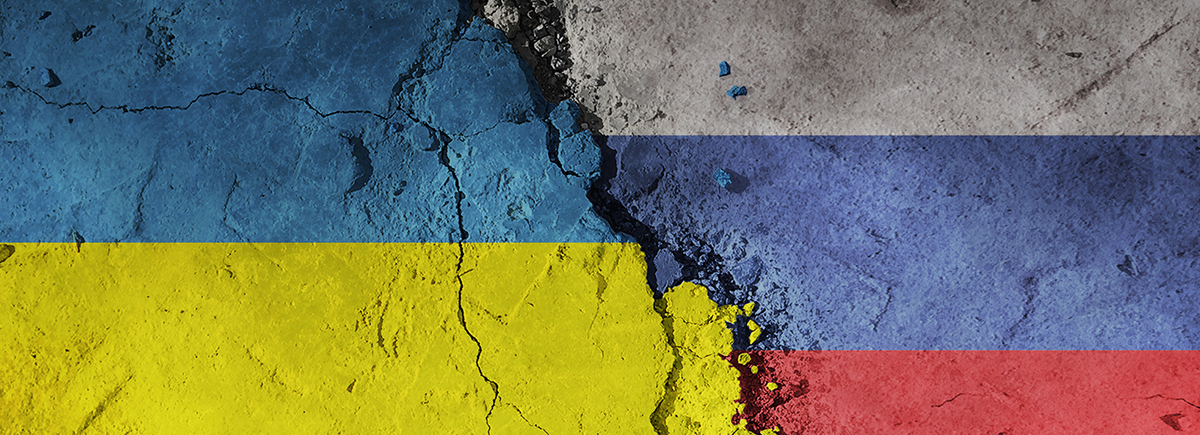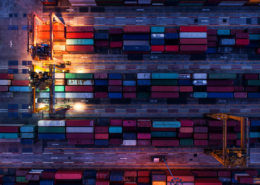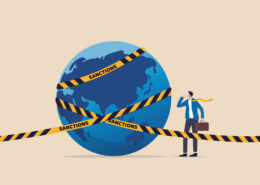Thanks to Russia, Cross-Border Sanctions Collaboration at All-Time High
Sanctions Stakeholders are Collaborating across Jurisdictions, Agencies, and Sectors
📅 February 28, 2024
📅 February 28, 2024
Russia’s unprovoked invasion and continued aggression in Ukraine has led to an unprecedented level of collaboration by sanctions stakeholders across jurisdictions, agencies, and sectors. IFI is publishing a series of blogs to highlight this increased collaboration. In this first blog, we take a look at cooperation across borders and most notably by the REPO Task Force and Price Cap Coalition.
The volume of information-sharing, meetings, and other coordination activities between jurisdictional authorities related to sanctions against Russia is by far the most extensive we have seen in a two-year period of any sanctions program in history. While most of this collaboration occurs outside of public view, it has become common to see multi-jurisdiction designation announcements, enforcement actions, advisories, and other joint press statements. Here are a few notable examples:
Two new institutions were created in 2022 to support multilateral collaboration on Russia sanctions, and each have made significant progress to enhance the overall impact and effectiveness of the sanctions, including with information-sharing to further improve enforcement.
The EU’s 12th package of sanctions against Russia introduced a strengthened information sharing mechanism that will allow better identification of vessels and entities carrying out deceptive practices, such as ship-to-ship transfers used to conceal the origin or destination of cargo and automatic identification system (AIS) manipulations while transporting Russian crude oil and petroleum products.
To mark the two-year anniversary of Russia’s invasion of Ukraine, the United States, UK, and EU are releasing a flurry designations and associated press releases, and we will almost certainly see a joint statement from the REPO Task Force on the group’s continued work similar to the one issued a year ago.

The Institute for Financial Integrity hosted a webinar to mark the two-year anniversary of Russia’s invasion of Ukraine on February 24, 2022. Watch the recording, during which IFI’s Nicki Kenyon and Pavel Verkhniatskyi, Managing Partner of Ukrainian due diligence and corporate intelligence firm COSA, discuss two years of sanctions, restrictions, and other measures countries around the world have implemented.
This is an outstanding opportunity to hear from an expert on the ground in Ukraine and understand compliance, due diligence, and investigations into Russia’s efforts to evade sanctions from Ukraine’s perspective.

Two years after its full-scale invasion of Ukraine, Russia has become the most sanctioned country in the world, with world powers imposing thousands of sanctions and other restrictions against Russian individuals, entities, vessels, and aircrafts. Strategic trade controls have become a substantial part of efforts to degrade Russia’s military capabilities and weaken its ability to wage war. At the same time, Moscow continues to come up with innovative and complicated ways to evade sanctions and trade restrictions and gain access to necessary resources to continue its aggression in Ukraine.










 Risky Russia – Government Agencies Warn Businesses of Possible Troubl...
Risky Russia – Government Agencies Warn Businesses of Possible Troubl...This site uses cookies. By continuing to browse the site, you are agreeing to our use of cookies.
Accept settingsHide notification onlySettingsWe may request cookies to be set on your device. We use cookies to let us know when you visit our websites, how you interact with us, to enrich your user experience, and to customize your relationship with our website.
Click on the different category headings to find out more. You can also change some of your preferences. Note that blocking some types of cookies may impact your experience on our websites and the services we are able to offer.
These cookies are strictly necessary to provide you with services available through our website and to use some of its features.
Because these cookies are strictly necessary to deliver the website, refusing them will have impact how our site functions. You always can block or delete cookies by changing your browser settings and force blocking all cookies on this website. But this will always prompt you to accept/refuse cookies when revisiting our site.
We fully respect if you want to refuse cookies but to avoid asking you again and again kindly allow us to store a cookie for that. You are free to opt out any time or opt in for other cookies to get a better experience. If you refuse cookies we will remove all set cookies in our domain.
We provide you with a list of stored cookies on your computer in our domain so you can check what we stored. Due to security reasons we are not able to show or modify cookies from other domains. You can check these in your browser security settings.
These cookies collect information that is used either in aggregate form to help us understand how our website is being used or how effective our marketing campaigns are, or to help us customize our website and application for you in order to enhance your experience.
If you do not want that we track your visit to our site you can disable tracking in your browser here:
We also use different external services like Google Webfonts, Google Maps, and external Video providers. Since these providers may collect personal data like your IP address we allow you to block them here. Please be aware that this might heavily reduce the functionality and appearance of our site. Changes will take effect once you reload the page.
Google Webfont Settings:
Google Map Settings:
Google reCaptcha Settings:
Vimeo and Youtube video embeds:
You can read about our cookies and privacy settings in detail on our Privacy Policy Page.
Privacy Policy